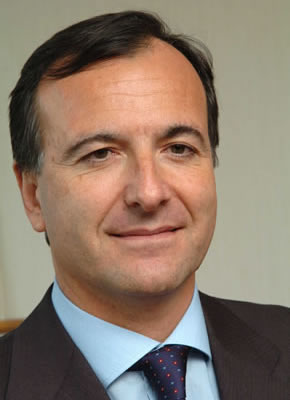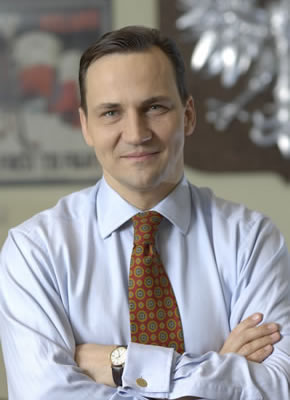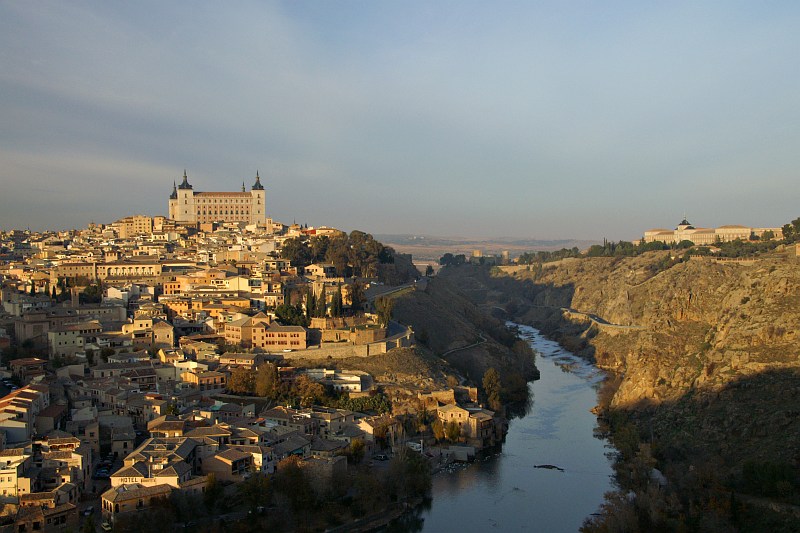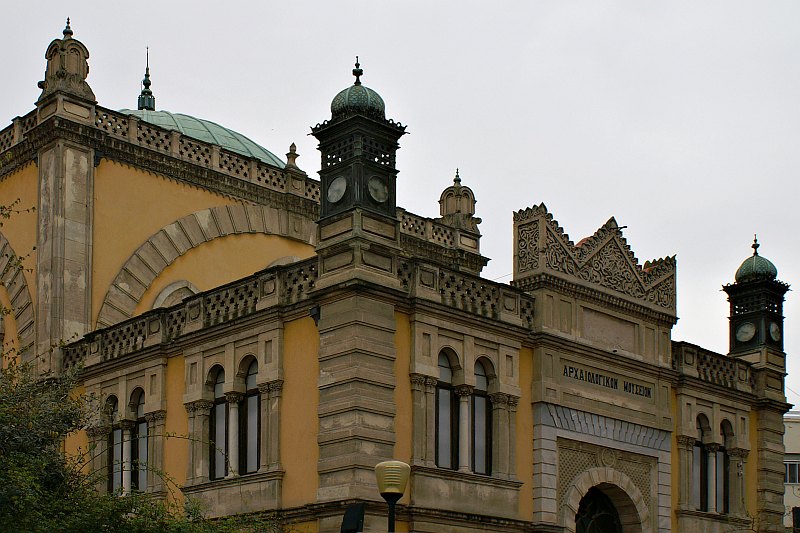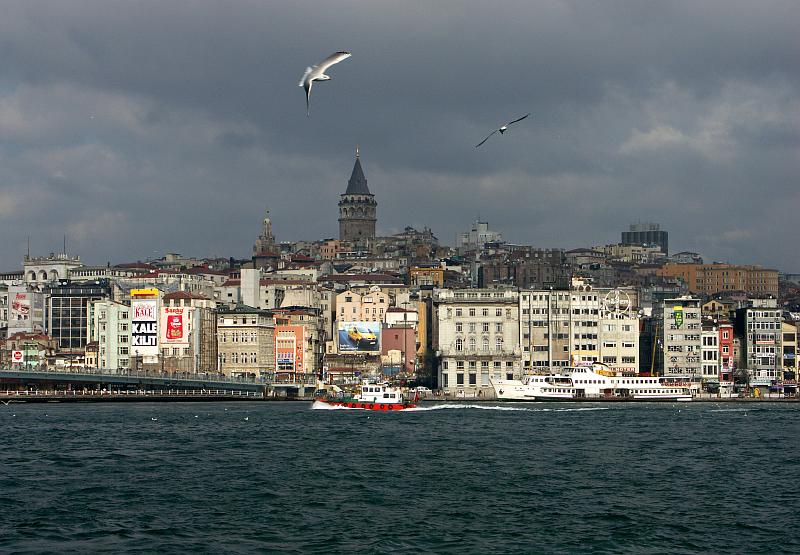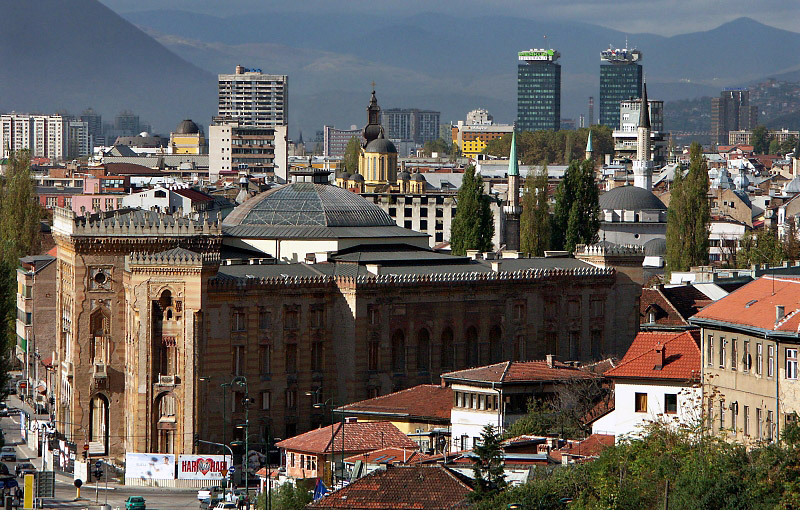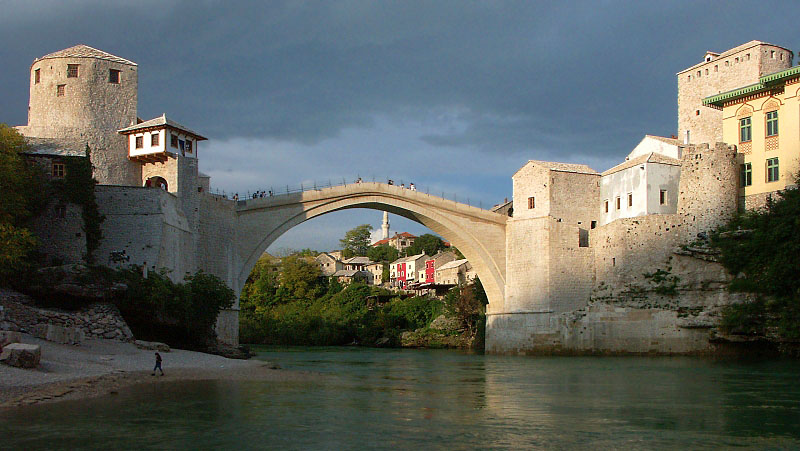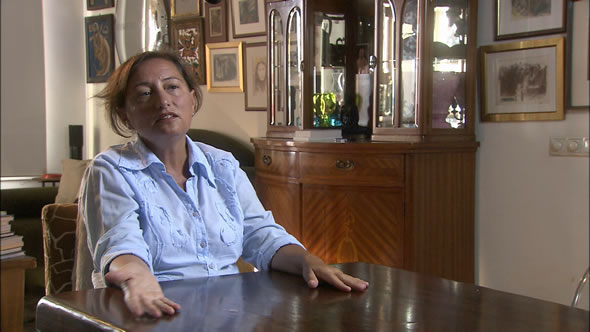
Perihan Magden is one of Turkey’s most widely read young authors. Turkey’s Literature Nobel Price winner Orhan Pamuk called her “one of the most inventive and outspoken writers of our time.” She is also a regular columnist for daily Radikal, criticizing the military’s influence in politics and the militarization of Turkish society.
I visit Perihan Magden in her house in one of the most beautiful villages along the Bosporus.
GK: You wrote once that the relationship of Turks to their military is almost religious and that the basic problem of the Turks is a too strong attachment to the military. Why is this so?
PM: Turkey was founded by a general. Mustafa Kemal was a soldier and he was our saviour. The army is also supposed to be our saviour and protector forever and ever. I always use the term omnipotent for the Turkish army. You cannot question their powers. They have no accountability. No one can ask questions about their budgets. Their status is that of kings in the Middle Ages. The status of the army is a big problem of Turkey. It is our big obstacle on the path to real democracy. In elementary schools kids are brought up with this incredible Mustafa Kemal worship, which extends to worshiping the Turkish army.
GK: Few Turkish columnists discuss the army in the way you do. What motivates you?
PM: If you are a columnist you are critical of your country but you want good things for your country. I really want a good democracy, a European-quality democracy for my country. And what stops us? I use the term “hybrid” democracy because what separates us from a real democracy is the omnipotence of the army.
Just before I went on vacation I wrote an article saying that I do not have a religion. I am not an atheist, because I believe in God, sort of. But it became a scandal because I equalled religious fundamentalists with Kemalists. They are both religious; they are both fundamentalists. Sometimes I call Kemalists state fundamentalists. If you are fanatical, other fanatics disturb you. This is the chemistry of fanaticism.
Though some people would reach the same conclusion, they would not want to write about it because they would feel endangered. They would feel that it is not good for their careers, maybe even for their lives. The army is very strong and no one wants to challenge their power. (laughing) Maybe it comes from my psychological problems. A conflict with father figures.
GK: Why did you write your article about conscientious objection in 2005 and did you, before you wrote it, expect such a reaction?
PM: Not at all. Sometimes I feel like I’m a stupid person living in a fairytale. In fairytales people are so stupid that all sorts of things can happen to them. My situation in Turkey is a bit like that: I really cannot see the dangers in this society. I look at things normally and I see it as my normal right to write about issues. I see it as my perfectly natural right to write about conscientious objection – it is a human right, no one can question that.
Every human has a right not to kill. And if you are doing your military service in Turkey there is a big chance that you might be killing someone, because there is an ongoing war in the Southeast of Turkey since 30 years. Why should you go to that severe experience of murdering someone in your life? Everyone should have a right to say “no” to that. Defending conscientious objection, I thought, is perfectly normal.
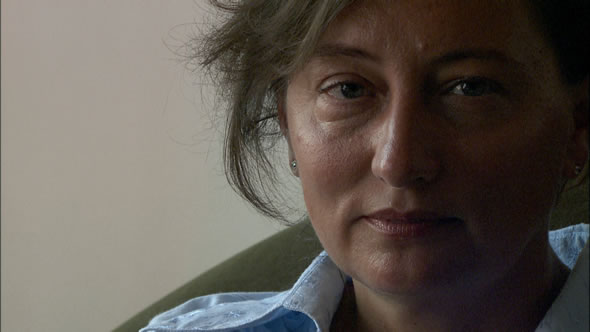
So I wrote this article. And the head of the army made a complaint to the prosecution. When the head of the army makes a complaint to a prosecutor in Turkey, of course the prosecutor opens the case. They never say “no”. But that my trial was also raided by fascists was something I did not expect at all. I realised that I was one of the targets in this country.
I saw this theatre of hate – which is an old punk group’s name – being performed for me and all the main actors of that group, which cursed me and threatened me in the court house’s corridor, are now in prison because of the Ergenekon process.
GK: So you suspect that your court case was part of a bigger plot because of all the people who were there in that courtroom?
PM: Of course. After Hrant Dink was murdered [in 2007] I was certain what was going on. They had raided four courts. They went to Orhan Pamuk’s court. They went to Elif Shafak’s court. They went to mine and to Hrant Dink’s. To Hrant Dink’s trail Veli Küçük showed up. Oktay Yildirim showed up at mine. He is the guy at whose house in Umraniye [on the Asian side of Istanbul] the weapons were found [by the police in summer 2007]. All the pieces of the puzzle fitted together after Hrant Dinks murder. Hrant was very down when Veli Küçük showed up at his trial. He said this was an ominous sign, a horrible sign. It was like an omen, like a Stephen King horror story. Everyone knows many things about Veli Kücük but he was always untouchable. No one was able to even interrogate him. These are suspicious facts that we have known for years. This is the funny thing about Turkey: people know things, they talk about things, journalists also know things but they will not write about them. Then why are you a journalist? Be a gossip lady, and sit at home and eat nuts and gossip.
GK: When did you first feel threatened?
PM: I felt very threatened at the trial, when I was mobbed. This is my country. I don’t want to feel threatened here. I love my country and I feel at home here, even though I hate it sometimes. I think it is my natural right to hate my country. You know, even in love relations, there is love and hate. It is my country and I would not want to be living feeling like a frightened little mouse. Then Hrant Dink was murdered and the State send me two bodyguards to protect me. Then I said: “Oh my God, I am really threatened.” Many people after Hrant Dink’s murder were so scared that they stopped talking, stopped writing until Ergenekon really blew up. Only then they felt safe to write again.
GK: In the specific case of the conscientious objector article you were not sentenced. There was a mobilisation in your favour – a lot of intellectuals came out for you, including Orhan Pamuk. But you kept being charged with other crimes. Why is that?
PM: I kept on writing. I did not lower my tone, I even increased it. Of course I’m going to write about these issues. It is my natural right as a columnist. In Europe it would be unthinkable to be in trouble for writing the things I write. I did not allow myself to be scared. Then I should have quit my job. That would be the honourable thing to do.
GK: How many cases are now in court against you?
PM: Around ten, eleven cases. And I have actually two imprisonment sentences against me, on probation. Both of these sentences are before the appeals court. So, it will take a while until this is resolved in the appeals court. If I get a third prison sentence, then the court should say that I should be sent to prison. We will see. But it takes so long. So you expect that the laws will change until then. Most of these cases are insult cases, like the case of Ismail Türüt and Ozan Arif, who made a video praising the murderers of Hrant Dink. The video was shown on YouTube. It was scandalous. The lyrics are scandalous. It was praising the murderers.
So, I wrote a harsh article … and they were insulted. They were so insulted that they took me to court. And the prosecutor immediately opened the case. Now it depends to the judge’s opinion. Where does strong criticism end and insult start? Where are the borders? These are metaphysical terms. For insulting someone nowhere else on earth would you be put into prison. Here I’m being threatened with prison for insulting Ismail Türüt’s and Ozan Arif’s sensibilities. And they praise the young murderer of Hrant Dink!
GK: You once wrote that the Turkish judiciary is like a lottery and that it is like torture …
PM: Yes. It is psychological torture.
GK: This has been ongoing for many years, once a month you go to the court: how do you cope?
PM: Sometimes I get very, very upset. I get crazy. I feel like: “Oh my God, they are persecuting me all the time. They are threatening me. They want to put me into prison. What is going to happen to me?” I try to study my cases and I try to find points for my lawyers. Then I hate myself in that state of mind. I do not want to be my own lawyer. It is a horrible thing to be.
I’m not a lawyer and I do not want to be in a position to defend myself against these ridiculous accusations. It is very much a lottery, because there are really nice judges and some decent prosecutors as well but they are exceptional. Sometimes if you are lucky in the gambling casino, you get one of the good ones. If you are unlucky, you get one of the Kemalist psychos. Then, saying for instance “Kemlist psycho”, I can be put into prison for insult if someone reports it to the court. So, it is like an endless thing for me, the more I talk …
Why should I be controlling my mouth? I am saying logical things. This “justice system” has nothing to do with justice anymore. It is a ridiculous lottery. If they feel like prosecuting you, they will prosecute you. If they feel like giving you a prison sentence, they will. If you have a nice and logical prosecutor and judge they will acquit you. It depends. Many are Kemalists who think that they are the owners of this society, that they are the headmasters and I am a naughty child who should be punished and who should shut up.
GK: You did not shut up, you kept on raising taboos, and then, suddenly, in the last few months, the people who have been threatening you were being arrested. What was your reaction when you first learned that Veli Küçük and the others were arrested?
PM: Of course I felt very, very happy. First of all, it is a personal relief to me that the ones who had mobbed my trial are in prison. I was calling them the deep state’s chosen actors and actresses. I was naming them in my articles. Now I feel relief, fairness and justice. I feel like the good will prevail. And I feel good for my country. This is like a detox for Turkey. It is like cleaning our intestines. The problem was killing us; it was wrapped around our neck. It was starting to suffocate us, this fascism and this deep state. Now it is like breathing more comfortably. It’s a nice thing for Turkey.
GK: You have been attacked in the media. How did this happen?
PM: I would write a normal article and then I was threatened by this Tercüman newspaper. They wrote “Curse this ugly woman!” and they put a picture of mine. For an article I wrote about benevolent, loving, nationalist Turkish kids in Turkish gymnasium who were putting needles to their fingers and dropping blood, so that from blood they made a flag and could send it to the head of our army, Yasar Büyükanit. And Yasar Büyükanit was very moved. He had tears in his eyes. He called the cameras and television crews. Whenever the military calls them they go, to make commercials for the military. When you watch the news I think one should put the banner “You have watched the military’s commercials”.
So Yasar Büyükanit is very moved and shows this flag made from the blood of Turkish kids in high school. I called this completely nationalistic and wrote that these kids should get treatment. So then this fascist, rightist newspaper decides that I’m a horrible woman and that Turks should threaten me, hate me even.
I think if they quoted it completely they would have seen: it was a beautiful article. It had a logic. Even their readers would have said: “Yes, this woman makes sense.” Instead they take some sentences and play with them. For two days they put me in their headline – they take my picture and say ugly words about me. This is not nice of course, in your own country to be a national target for writing that kids should not be thinking that they are natural born soldiers. But I think now there will be a serious shift with Ergenekon. I hope, hope, hope.
GK: How important is what’s going on now in the Ergenekon trail?
PM: It is not a revolution, I would call it a hopeful evolution – we will evolve to better things. It’s a big, great, beautiful chance of cleaning up our act. Now it is our time to clean our system from all these dark forces trying to run the country for us, killing people, making assassinations, making trouble – trying to control Turkey. So now it is time that we get rid of them.
I think we can never reach the bottom, because I think very important, probably very powerful figures from the army were involved. They made this a mystical thing: Who is the No. 1? And Samil Tayyar, the big Ergenekon reporter, writes: “I know it but I can only give the initials.” It’s hush, hush, hush. But if AKP now puts its act together and says “Now we feel the people deserve a constitution, which is not a military tailored one” our democracy would change. AKP are my only hope for the betterment of this country. This is tragic in a way, because they are religious people and a conservative rightist party, but they are my only hope for the betterment of this country. My biggest wish now is that they should go to referendum and ask the people of Turkey. They should ask: “Are you for a new constitution or not?”
GK: In your books there are many mysterious murders. Is this a reflection of growing up in Turkey?
PM: Probably, they have some political connotations but they have also psychological connotations. It might be that I have always felt unsafe. I think that’s a common denominator with the Turkish psyche – they feel unsafe. The next morning they will wake up and they do not know what might happen. A coup d’état, bombing, party closure… we always have been made to live with incredible unpredictability. We are not like Norwegians – their only worry would be if the milkman brought the milk. We have horrible political worries all the time. I think that makes us tense and insecure. I think that my mysterious murders could be a reflection of that.
GK: Your book “Two girls” describes on the one level a very universal story: a love affair, problems with the families… How is it an Istanbul Story? What makes it a Turkish story?
PM: Because the writer, myself, is from Istanbul it is an Istanbul story. I really mapped Istanbul in this novel. The addresses I gave everyone can find. It’s my Istanbul where I grew up, pieces from my youth.
Whenever I write a book, I want it to be universal because the human issues are the same all over. These teenage problems – when you are a teenager, you are like a snake changing your skin – it’s such a horrible period, everyone threatens you. I think all teenagers are naturally homeless because they live in their parent’s home but they do not belong there anymore. And they cannot move out. All these themes are very, very universal but in a way it is also very Turkish because these girls are living in a society, which is like a ticking bomb. I wanted to reflect that, especially for women, for girls. If you look at it in a Marxist way, women are always one class below men working class men are above working class women. Women will always be lower. So I also wanted to show that there can be this class-stricken anger in some women, against mankind and against males in society. And Turkey is sometimes very male, a suffocating society for women. When you are a girl you are most vulnerable as a teenager. I just wanted to reflect that and I thought hat some women can really strike back. That’s my wish of course. I want people to strike back.
GK: The girls who appear in your book are, on the one hand, very European, cosmopolitan, listening to European music. But there is always this violence in the background. How Turkish is that? And is there a special frustration among young women in Turkey now?
PM: I think there should be! I say: “In this society you are suppressed for being pure, you are suppressed for being young, you are suppressed for being a woman – how come you are not angry?” So I take a girl, who is able to become angry and it is like my dream. I want this anger.
GK: Were you surprised by the big success of “Two girls” in Turkey?
PM: I was praying and wishing that it would become a bestseller because I wrote it for Turkish youth. I said: “I wish they read it so that they would be influenced.” If they read what Behiye reads – you know, her favourite authors are Herman Melville, Kafka – or l isten to the music she listens to. I wanted the young to read it very much
GK: Your characters are very unconventional…
PM: The girls?
GK: Yes. They are challenging conservatism. They fall in love. Is there also a reflection here of a more modern attitude in Turkey towards sex?
PM: Yes, definitely. But the girls are not unconventional. Most Turkish youth – especially in this huge, metropolitan, giant Istanbul – live like this. I got letters from girls in Anatolia who were lesbians. They sent me their pictures. This is a very gay society. But the book is not about a gay love affair, because what I wanted to say is that when you are a teenager, everyone is much, much more bisexual. You are open to everything. You are open to big passions; it can come from your sex or the opposite sex. I think this is very realistic and I think they are very typical Turkish girls.
GK: Speaking openly about this kind of relationship seems to be new. Were you attacked?
PM: No, not for this. The fascists don’t read novels. I was not attacked for that.
GK: When will you write your next novel?
PM: Soon. I want to start like at the beginning of the new year. In January I’ll clean my system and start writing a much, much more fun book, which won’t make me suffer.

